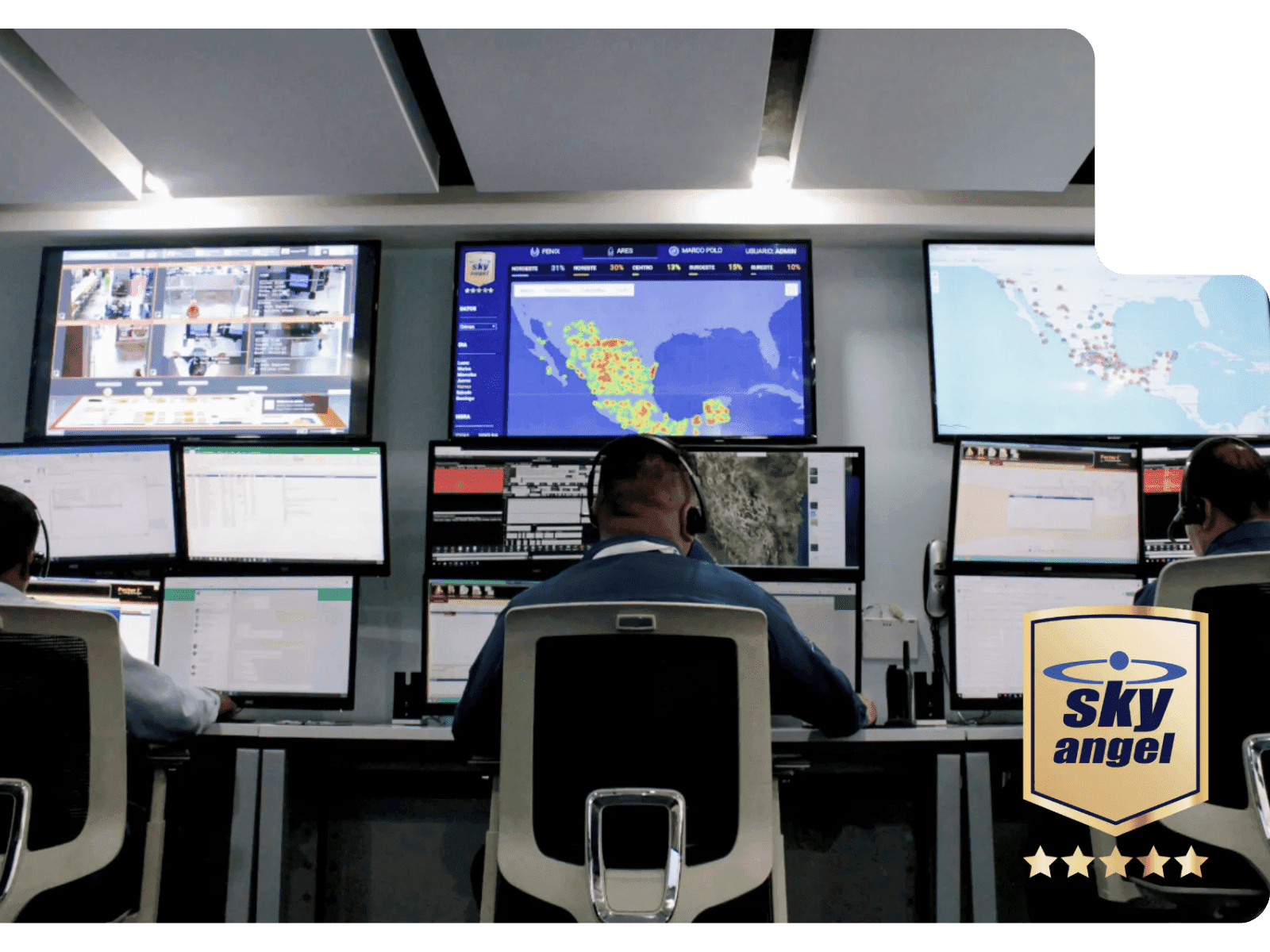GpsGate's projections for 2025's top tracking devices
Successful fleet management businesses rely on accurate data and intuitive software. But an equally important piece of the puzzle is reliable hardware. When solid technology pairs with the right hardware, fleet managers can use GpsGate to inform safety strategies, set fleet KPIs, and forecast vehicle maintenance schedules. Year by year, device manufacturers advance the capabilities of trackers to meet the more nuanced needs of fleets around the globe. In this article, we discuss what we expect to see this year from GPS devices in terms of fleet trends, technological advancements, and usage.
Current trends in GPS tracker usage
Valued at USD 3.1 billion in 2023, and projected to grow to USD 6.5 billion in 2030, the GPS tracking device market shows no signs of slowing down. Sources suggest that advancements in IoT and cloud technology, along with an uptick in commercial vehicle sales are driving continuous growth in the industry.
Hardware manufacturers like Teltonika, Queclink, and Jimi-IoT continue to dominate the market, with Orbcomm and Jointech gaining more traction as they continue to develop hardware supporting more complicated asset-tracking verticals. Market research indicates that devices within the advanced GPS trackers segment accounted for 55-57% of total sales revenue industry-wide in 2022, with steady growth expected in the years to come.
What will influence advancements in GPS devices?
Aside from developments in IoT, cloud computing, and the rise in commercial vehicle sales, GSM technology is significantly influencing the development of new tracking devices. By the end of 2022, 10 countries had switched off 2G networks, with Asia Pacific and Oceania at the forefront. Saudi Arabia and the UAE banned the importation of 2G devices after shutting down legacy networks in 2022, while Colombia, Ecuador, and Mexico are phasing out 2G networks. Cullen International reports that of the 31 European countries they researched, 22 had switched off their legacy 2G and 3G networks, or planned to do so.
Furthermore, a rise in new fleet verticals is demanding more from GPS tracker technology. For instance, logistical solutions specialists at Paxster have specific device requirements for their electric vehicle (EV) fleet. Paxster relies on tracking devices that read CAN bus EV data. For GPS device manufacturers to remain competitive, they must develop technologies that support modern fleet verticals, driving the development of more robust tracking devices.
Discover how Paxster uses GpsGate to revolutionize the last-mile delivery experience.

Most used GPS trackers in GpsGate in 2024
Based on active new user data from 2024, we managed to gain insights into the most popular tracking devices amongst GpsGate Cloud users over the year. They include:
Our predictions for most used GPS trackers in 2025
GPS trackers aren’t one size fits all. The data needed to make decisions for cold chain fleets in the US differs from forestry departments in Spain, so fleet businesses rely on specific trackers to gather information that best fits their needs. We've categorized several GPS trackers that are suited to different fleet verticals and listed those we expect to be used most in 2025.
Basic GPS tracking devices we expect to be used most in 2025:
Basic trackers are used by smaller fleet operations. They send fundamental signals but cannot send advanced tracking data to GpsGate. This hardware category works well for basic track and trace operations by sending signals for speed and geofences. Within GpsGate, event rules are used to gather the data these devices send, informing fleet teams of driver behavior and vehicle whereabouts.
While more advanced hardware exists, a wide market for basic track and trace devices remains. Of those on the market, we expect these to be used most in 2025:
Advanced GPS trackers we expect to be used most in 2025
Advanced GPS trackers offer more nuanced data for engine and driving status in fleet vehicles. With advanced GPS trackers, fleet managers analyze fuel consumption, seat belt status, driver identification, and more forms of advanced data in GpsGate. When paired with GPS accessories, advanced trackers are used to remotely kill the engines of stolen vehicles, and detect signal jammers used by prospecting criminals to boost fleet safety.
Mexico-based fleet security experts Skyangel serve a wide range of commercial customers and use advanced tracking devices with GpsGate to reach a 95.3% stolen vehicle recovery rate.
Learn more about how Skyangel uses GpsGate to provide cargo security monitoring.

As more fleet verticals emerge, these are the advanced trackers we expect to be used most in 2025:
Asset tracking devices we expect to see used most in 2025
Asset tracking devices are best known for their battery life and durability. Typically used in mining, heavy transport, and asset management in field operations, these devices send data to GpsGate while enduring harsh conditions. Asset tracking devices send geofence, temperature, and humidity data which are configured to send field managers notifications for when assets have reached desired locations or when they’re within optimal temperature ranges.
US-based Mining company Wabtec keeps thousands of mining workers and millions of dollars worth of equipment safe around the clock. With the presence of heavy mobile equipment, light vehicles, and personnel, Wabtec depends on data processed by GpsGate to configure proximity and geofence alarms that keep their workers and equipment secure.
Discover how Wabtec integrated GpsGate into its internal system for 24/7 fleet visibility.

These are the asset tracking devices we expect to be used most in 2025:
GPS satellite tracking devices to be used most in 2025:
When fleets operate in remote areas, satellite tracking devices come into play. These devices are used in no GSM coverage zones, or sensitive areas, and offer both basic and advanced tracking features that are used by operations on land and at sea. These devices send fuel usage, real-time location, and SOS button data to GpsGate, which can be configured to accurately track assets, and send alerts for suspected fuel theft, and SOS events.
These are the satellite tracking devices we expect to be used most in 2025:
GPS accessories to be used most in 2025:
GPS accessories are growing in popularity. When paired with advanced tracking devices, data gathered from GPS accessories is invaluable. Aside from relays, BLE beacons, temperature sensors, and fuel level sensors are seeing an uptick in usage. The data sent by these accessories to GpsGate informs fleet managers of suspected fuel theft, nuanced driver behavior data, cargo humidity levels, and more.
These accessories are supported by integrated Teltonika and Queclink devices in GpsGate. We expect to see these used most in 2025.
- Bluetooth temperature and humidity sensors
- BLE beacons
- Fuel level sensors DSM and ADAS cameras
- Remote engine kill
Why GPS tracking devices matter
With more commercial fleet vehicles hitting the asphalt, the growth in the GPS tracking device market is imminent. This, however, is not the only factor driving expansion in the industry. As more fleet verticals appear throughout the world, GPS device manufacturers are required to continuously develop technology to meet advanced fleet needs.
Based on these changing requirements, we expect to see brands like Queclink and Teltonika continue to dominate, and for manufacturers like Orbcomm and Jointech to gain more traction. As a result, GpsGate will continue to stay hardware agnostic, to ensure that position-based businesses can continue to get to know their fleets better.
- acceptCookies - We use this cookie to remember if you have closed this window or not.
- country - We use this cookie to serve you country-specific data.
- gg_sessionId - This cookie helps us debug sign-up issues and general errors.
You can read more about cookies and privacy here.